Wedding Photography is Experiencing its Own #MeToo Moment
![]()
It took two women and a pair of viral Instagram posts to start an industry-wide conversation about the sexism and abuse wedding photographers regularly experience while doing their jobs. Thousands of other people’s accounts, shares, likes, and comments later, where does the industry go from here?
Photographer Highlights Abuse in the Wedding Industry
The beginning of this challenging conversation started with wedding photographer Caroline Goosey from Chester, United Kingdom, after she shared her frustrations in an Instagram post at the end of October last year. She later reiterated and expanded on it in a blog post in January.
“Some guests’ behavior at weddings this year has been incredibly concerning,” she writes. “Maybe it’s because they’ve had 18 months unable let their hair down, I dunno. I know that I and many of my colleagues in the industry have felt intimidated by abusive and sexist actions and language used by some guests at some weddings.”
View this post on Instagram
Although Goosey says she doesn’t experience this at every wedding, she has felt powerless when it does happen.
“If I was employed, I’d be escalating this, but what are my options here? To grin and bear it, or to inform a couple and leave? I have no union I can turn to for protection in the face of harassment in the workplace. It would be wonderful to think that going to a couple and saying ‘this person over here is harassing me’ would result in the said person being asked to leave. But in my mind, I can’t see toxic people leaving in a way that does anything but cause yet more drama.”
Numerous incidents that other wedding suppliers shared in response to Goosey’s story echoed her sentiments. Besides first-person accounts of suppliers directly affected by verbal or physical abuse, others chimed in to share what they’ve observed.
“As a man, I’ve never had someone come over to me giving me unsolicited advice on how to use my camera, what gear to use, or suffered any other of the ill behavior that you’ve mentioned here,” comments one filmmaker. “Yet it happens to most of the female photographers that I work with. Unacceptable.”
The comments detail incidents, ranging from women having to laugh off sexually inappropriate remarks to dealing with physical aggression. A comment under Goosey’s post summed up the situation as “shocking, and also sadly not so shocking.”
A few months later, photographer Kim Williams shared her experiences on Instagram, recounting similar experiences to ones discussed in Goosey’s post.
![]()
The response was louder and even more widespread and her story was shared across multiple publications in and out of the photography industry including Insider, PetaPixel, and Hitched.
When a friend asked if Williams would have shared her post if she knew at the time how big it would become, Williams was not sure.
“I think I would’ve thought twice. I’m so, so proud of how it’s doing, but it’s quite terrifying to have so many eyes on you.”
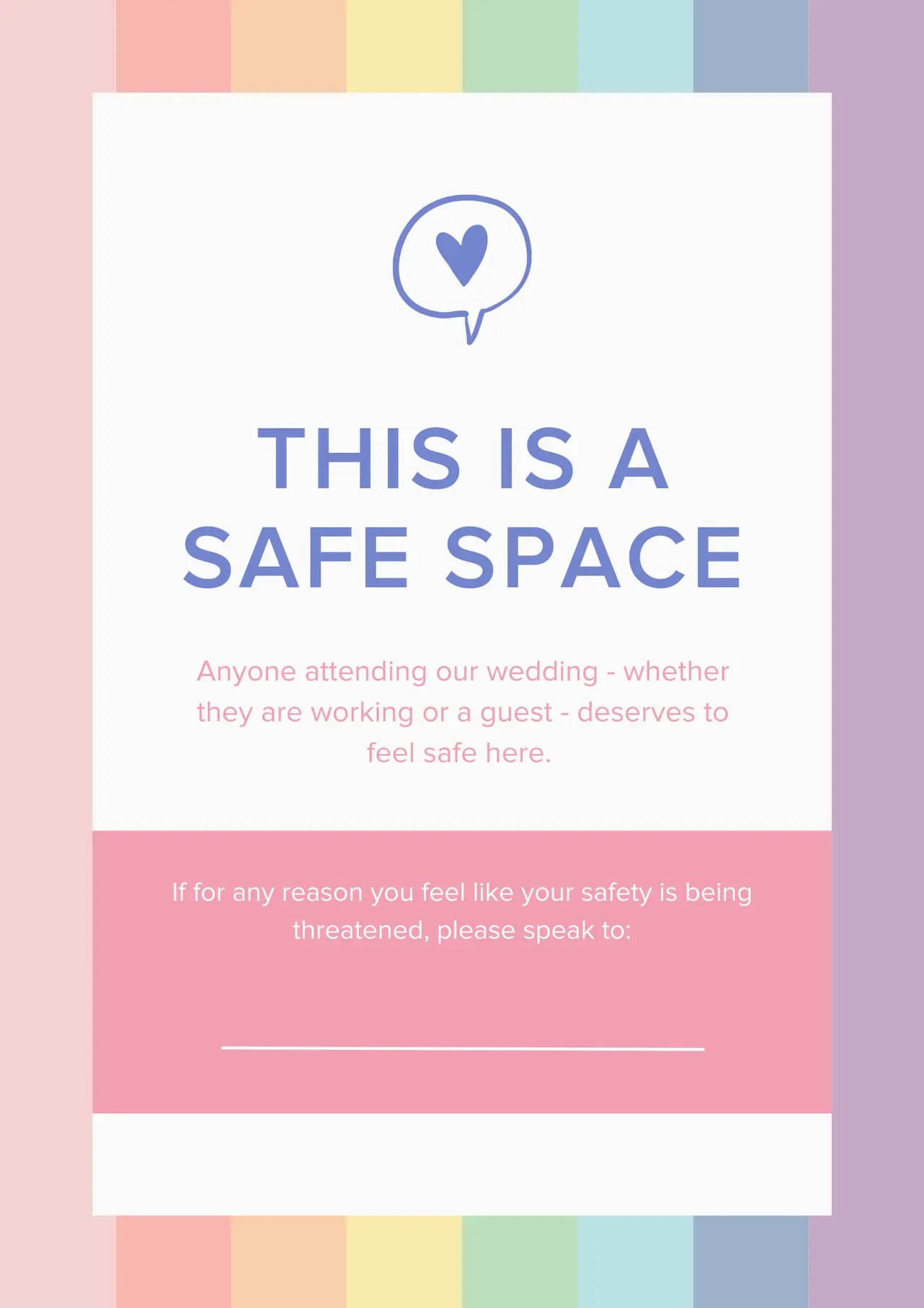
Widespread Fear and Frustration
It’s not easy to publicly discuss uncomfortable experiences. Fear and shame often keep details buried away, yet both Goosey’s and Williams’s stories have encouraged others to speak up publicly.
One such photographer, Stephanie Large from Stephanie Dreams Photography, agrees that 2021 was particularly distressing for her because of the behavior of some men.
In one instance, she says the bride’s father told her that her legs look good in a skirt. In response, one of the men grabbed Large’s arm, which has a queer tattoo, showed it to the group, and said, “she is not for you.”
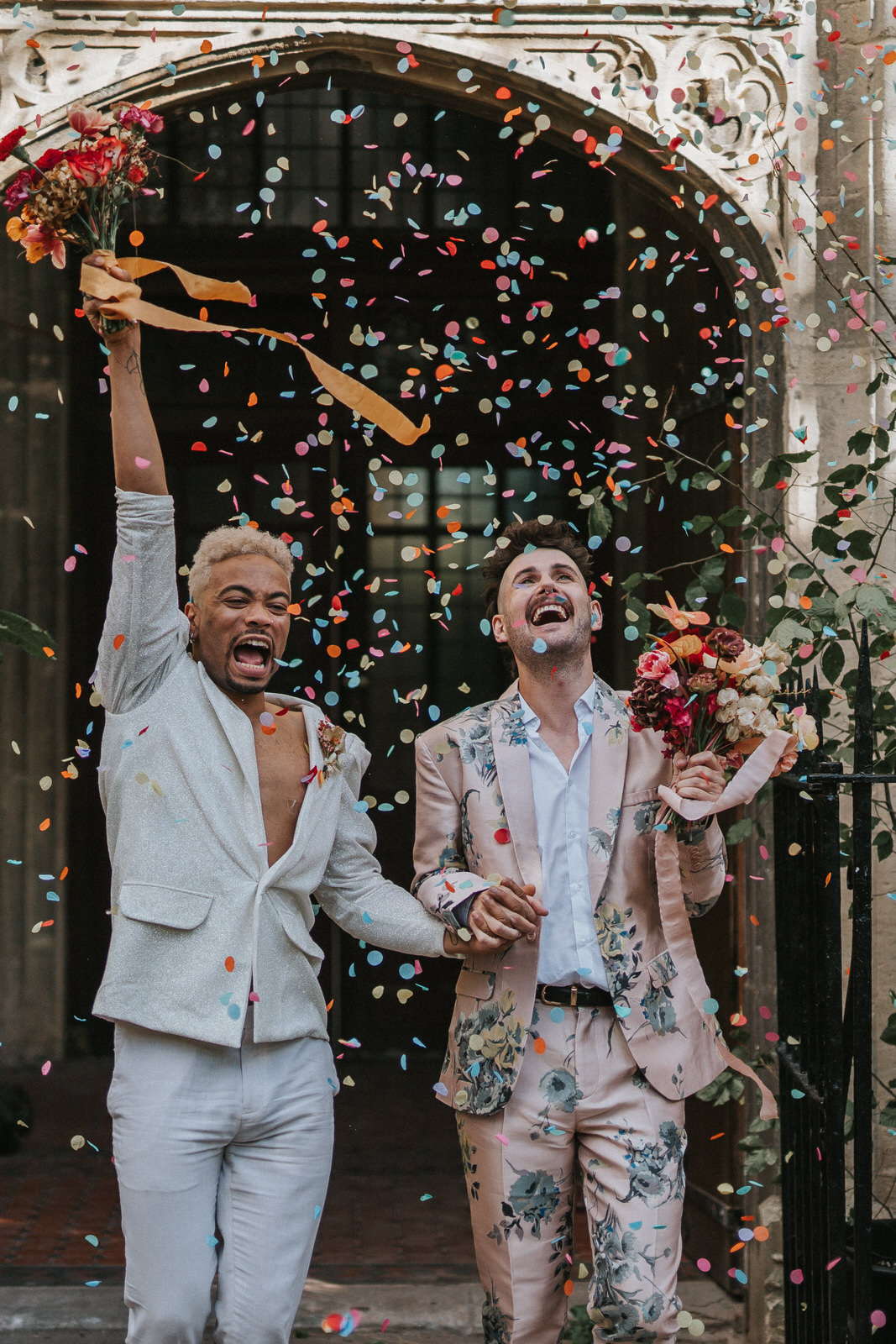
Another incident involved the best man. Although Large asserted that she had a girlfriend at the time, he persistently kept coming on to her. Later, when she was about to leave, he reminded her that the room she photographed was his and that she should come back to it. Even though the man’s girlfriend was a guest at the wedding, it didn’t stop him from making the sexually suggestive comment.
However, the most distressing experience was a guest asking Large to photograph his genitals in his hotel room. Luckily, a few guests intervened before the situation escalated further.
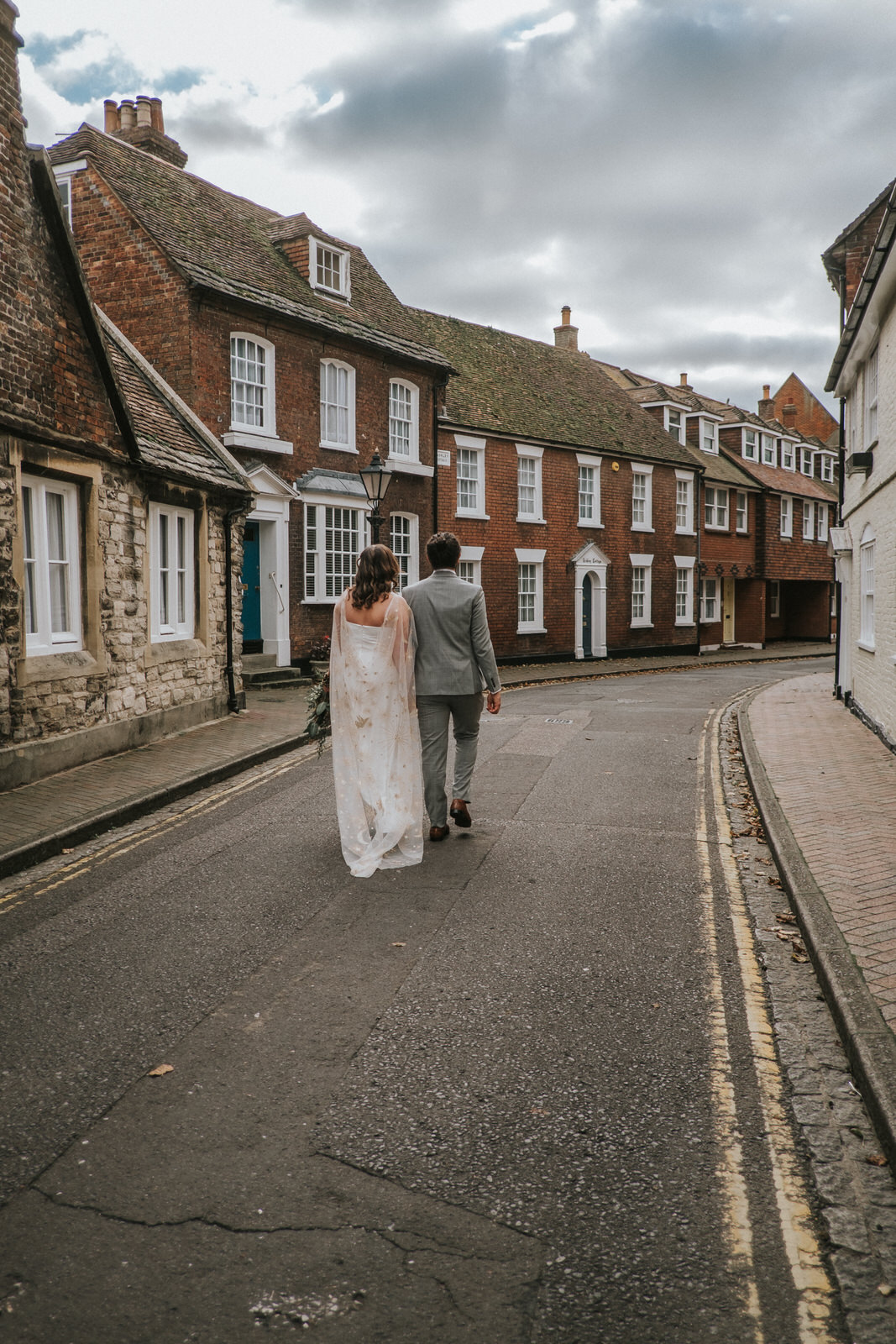
Large tells PetaPixel that she’s not the only one to get a request like this. Her industry friend, also a photographer, had a similar experience. When the guest mentioned photographing his genitals, she replied with, “I’ll get my zoom lens out,” hoping to de-escalate the situation and laugh it off.
However, the guest didn’t expect that comment. As a response, he belittled the photographer, made insensitive comments about her body, and was rude throughout the day.
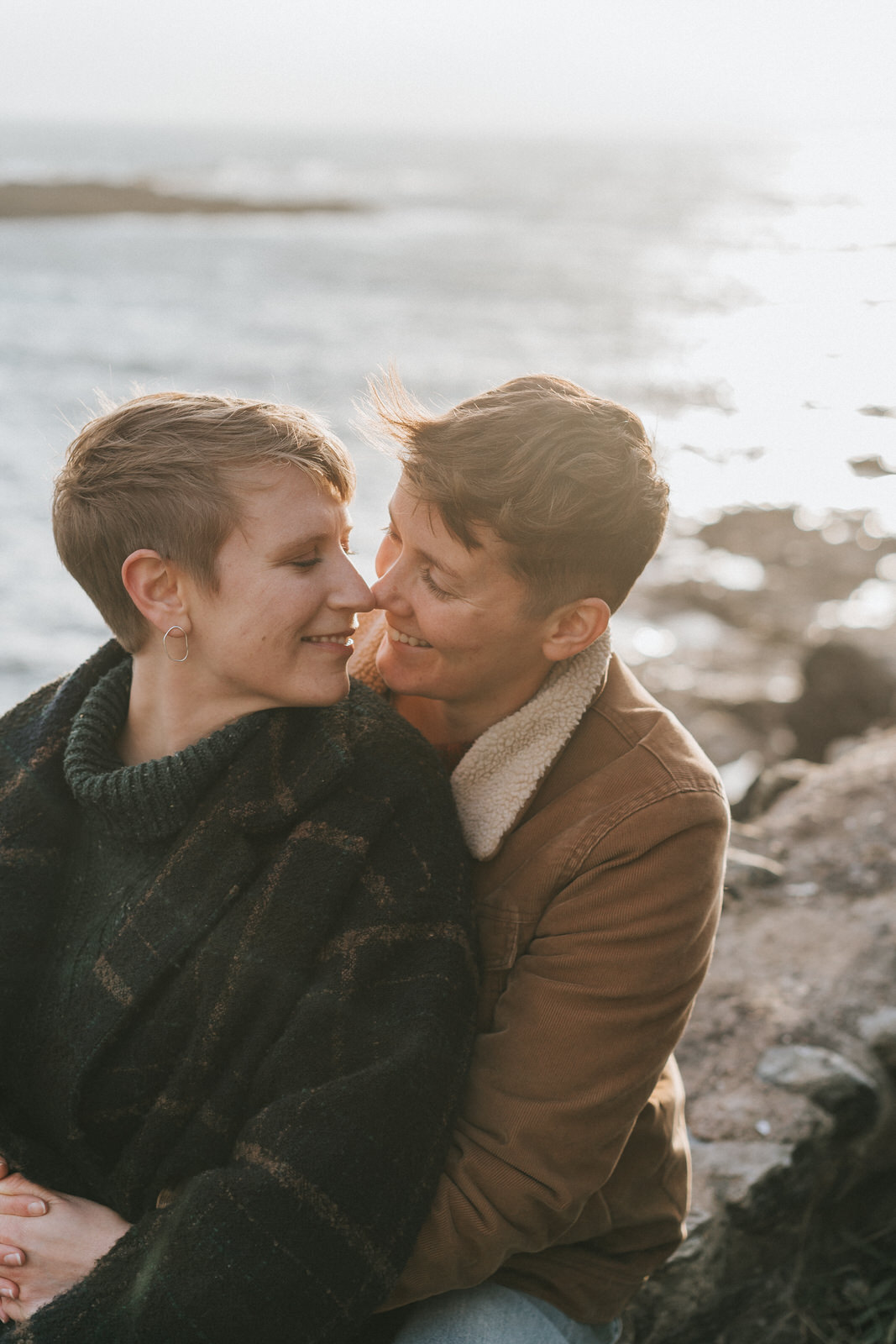
Large says she is sad and frustrated that these things happen, but worries that the conversation and media attention will get forgotten, particularly when the season for weddings starts later this year. Speaking to her photographer friend, they both believe that the regularity of incidents like these is not as prevalent in other jobs.
“Almost in every wedding, you get someone like that in some capacity, and we’re made to feel that we should just sweep it under the carpet or not think about it. So much has happened that it’s such a normal thing now to just forget about it because we can’t do anything about it, but if we do, we’re made to feel like sh*t.”
Amber Marie Barker, a photographer at Amber Marie Photography, tells PetaPixel of a distressing incident several years ago when an usher said he wanted to stick his head between her thighs. He then grabbed her around the waist from behind.
“I had to avoid him for the rest of the night, which meant I couldn’t get photos of the groom during the party as they were together, and every time he saw me, he said something rude.”
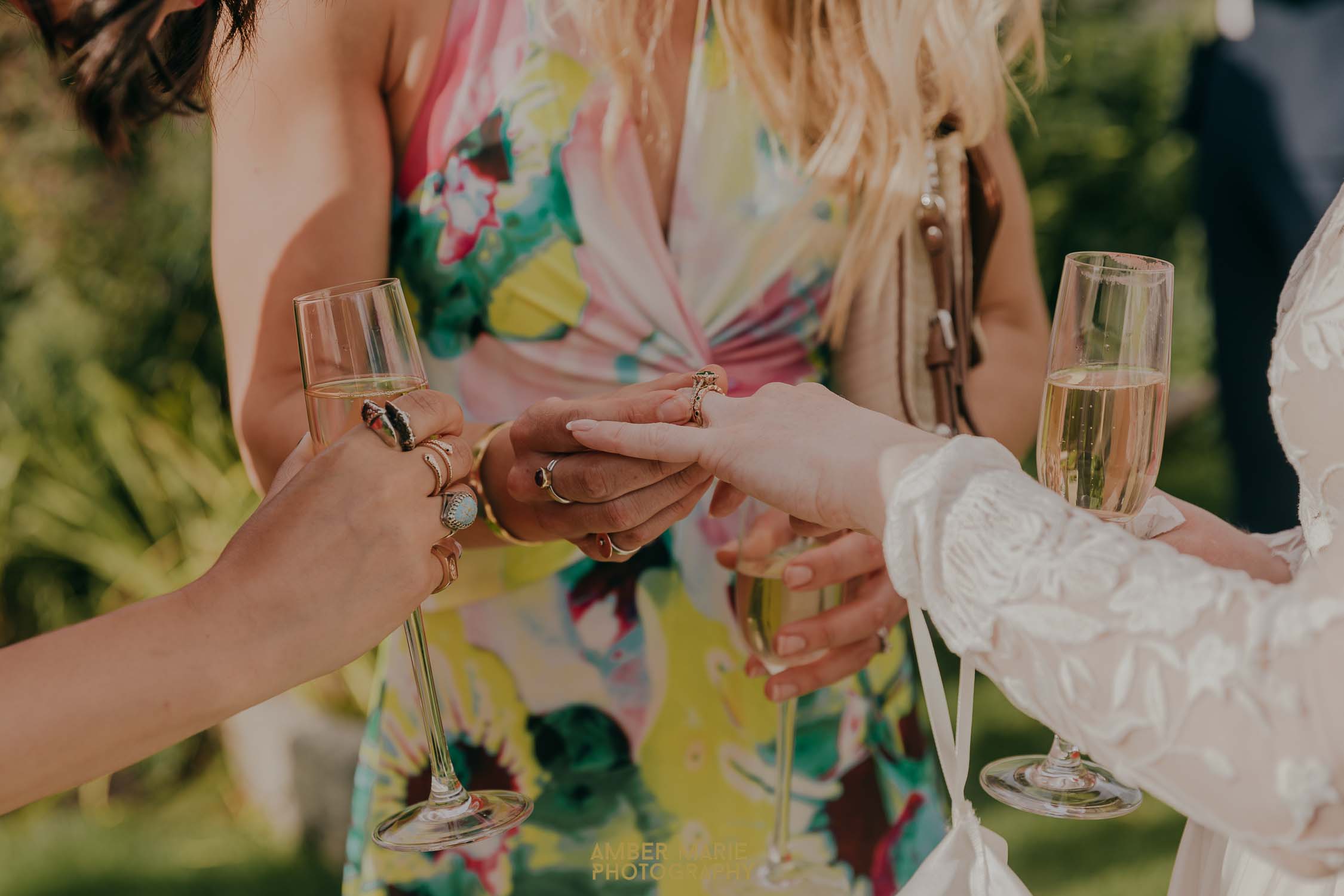
Recently at a wedding, the bride’s father introduced Barker to his friend and “jokingly” said his friend had just got out of prison for raping a photographer.
“He later asked me to sit on his lap,” she recounts.
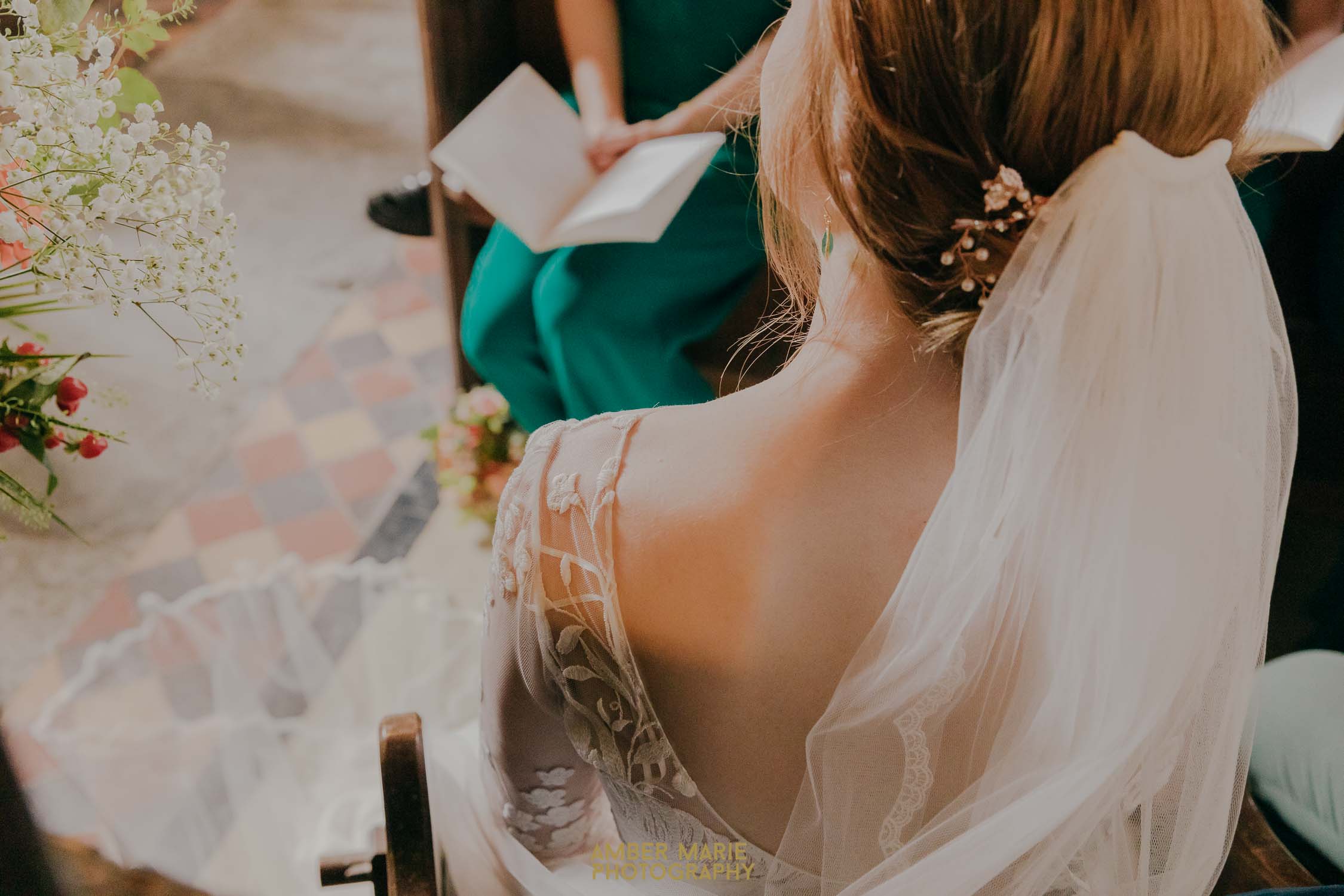
When Barker was around 20, she also used to photograph music events and club nights but had to stop because she hated dealing with drunk men. She says that in on instance, a man shoved his hand down her top and grabbed her breast.
Although the security removed him from the venue, the damage was done.
Nelly Naylor, a wedding photographer, based in Sheffield, United Kingdom, tells PetaPixel not a single wedding goes by without a male guest giving unsolicited advice or patronizing comments. Over ten years as a professional, she says that the harassment she experiences has become exhausting, from instances where guests tell her how to do her job to unwanted physical touching, she says she’s experienced it all.
Even a fellow wedding supplier once suggested that photography is a “man’s job,” Naylor recalls.
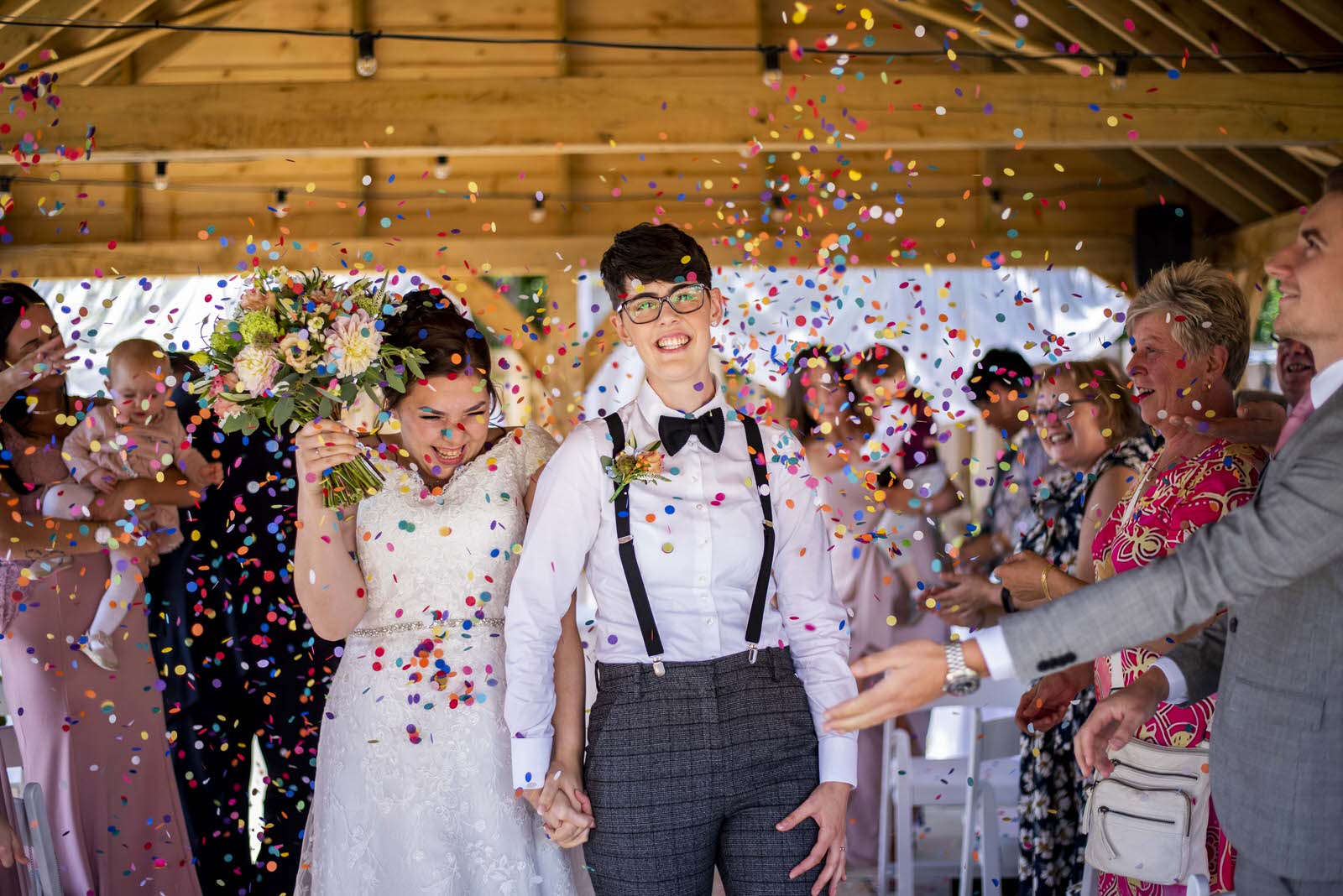
However, as weddings began to resume in 2021 after a year of strict lockdowns, she also feels that guests’ behavior has gotten worse. The mix of alcohol and the long-awaited freedom can soon get out of hand and put photographers, especially women, in vulnerable positions.
Naylor says that one incident in particular from last year sticks out. She had just taken photos of the groom’s party — a group of around 12 men — who had gotten extremely inebriated throughout the day. Some of the men in the group kept grabbing their crotches and putting their hands in trousers, asking Naylor to take photos.
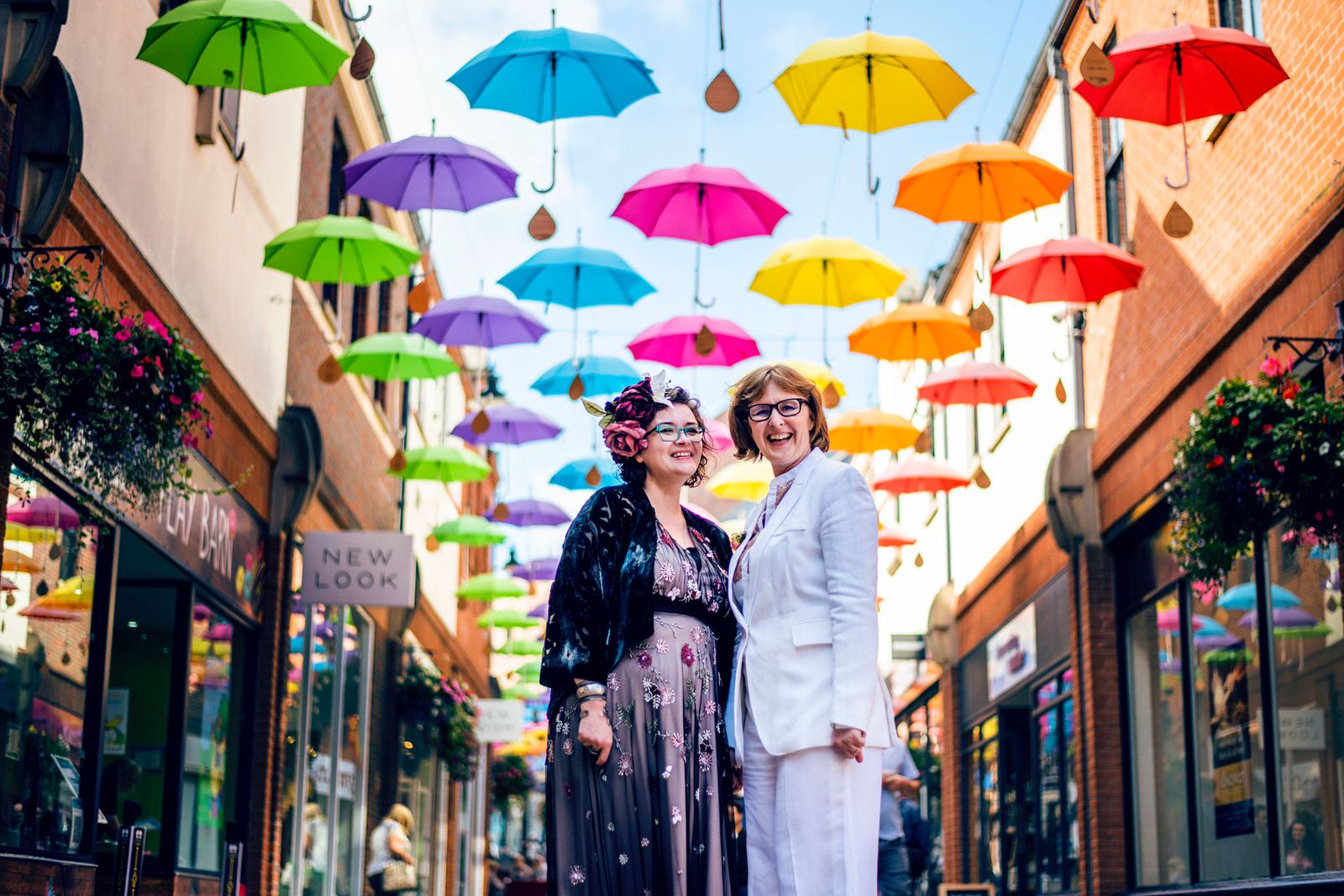
One of the men approached Naylor and tried to expose himself, saying, “you must miss this,” referring to Naylor being gay. Others in the group followed his lead and heckled Naylor, shouting comments like, “come and grab this!” while unzipping their trousers.
Naylor tells PetaPixel she felt intimidated and tried to keep quiet about this because she “didn’t want to ruin the couple’s day.” However, the situation didn’t ease, and Naylor confronted one of the men harassing her. She told him how inappropriate it is to try and expose himself while she’s just trying to do her job.
One of the mums noticed that something was awry and asked if everything was okay, to which Naylor told the truth. It turns out, the group of men had done the same to women tending the bar, too.
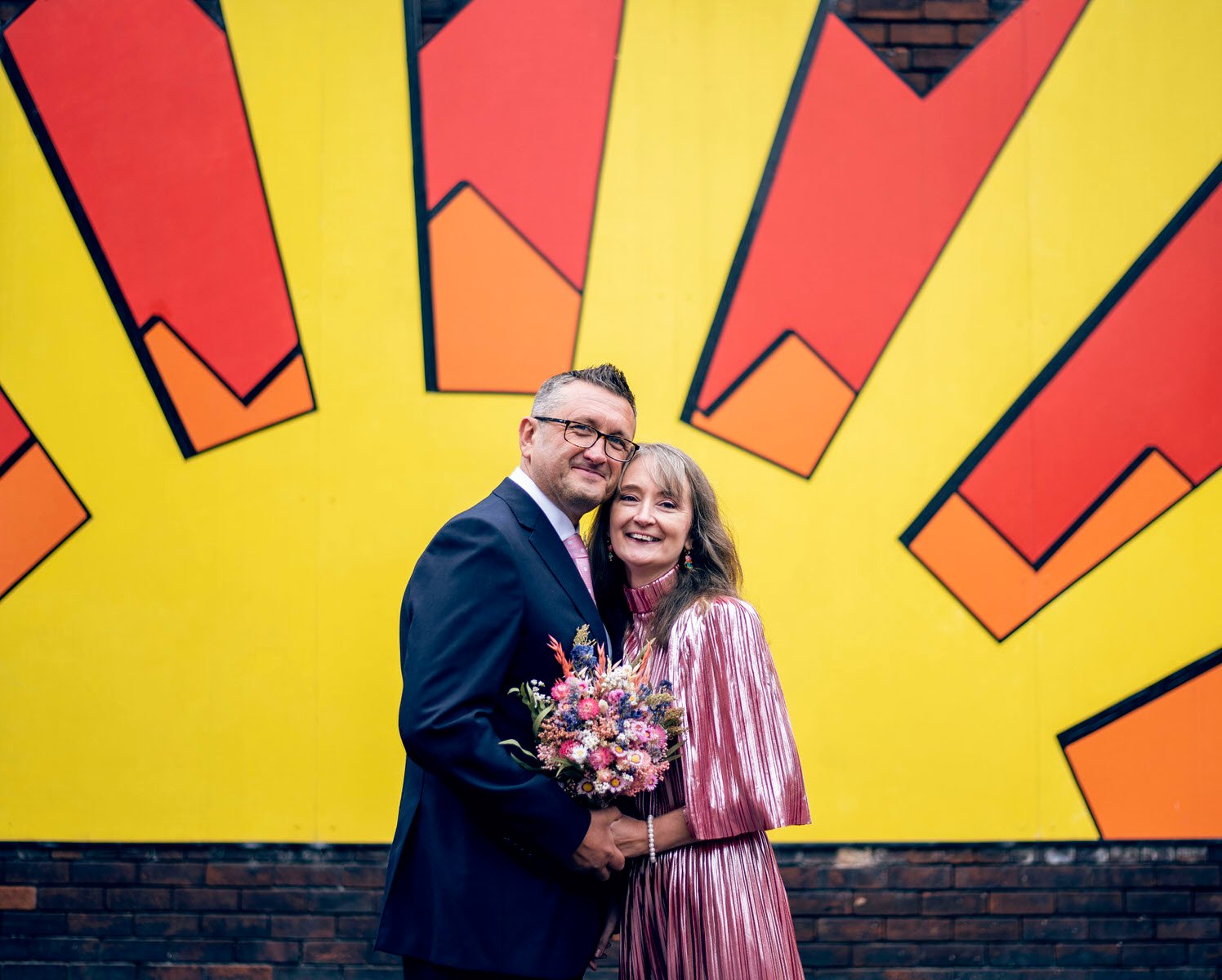
Looking back, Naylor says she felt intimidated and scared whether the group of men would attack her or single her out away from all of the other guests and do, “God knows what.”
After Naylor delivered the clients’ photos, she told them about her experience which, she says, left them “gobsmacked.”
Many Still Minimize These Experiences
While changes are needed to prevent future behavior, Williams adds that parts of the conversation are at a standstill because many people do not believe her nor want to reason with her or others who share similar experiences.
“It’s fascinating to watch people telling me I’ve made it up or am doing it for attention when there are thousands upon thousands who are saying the same thing has happened to them,” she says. “That is quite mindblowing.”
Disbelief aside, some social media users felt called out and attacked. They retaliated and aired their grievances about the issues Williams highlighted.
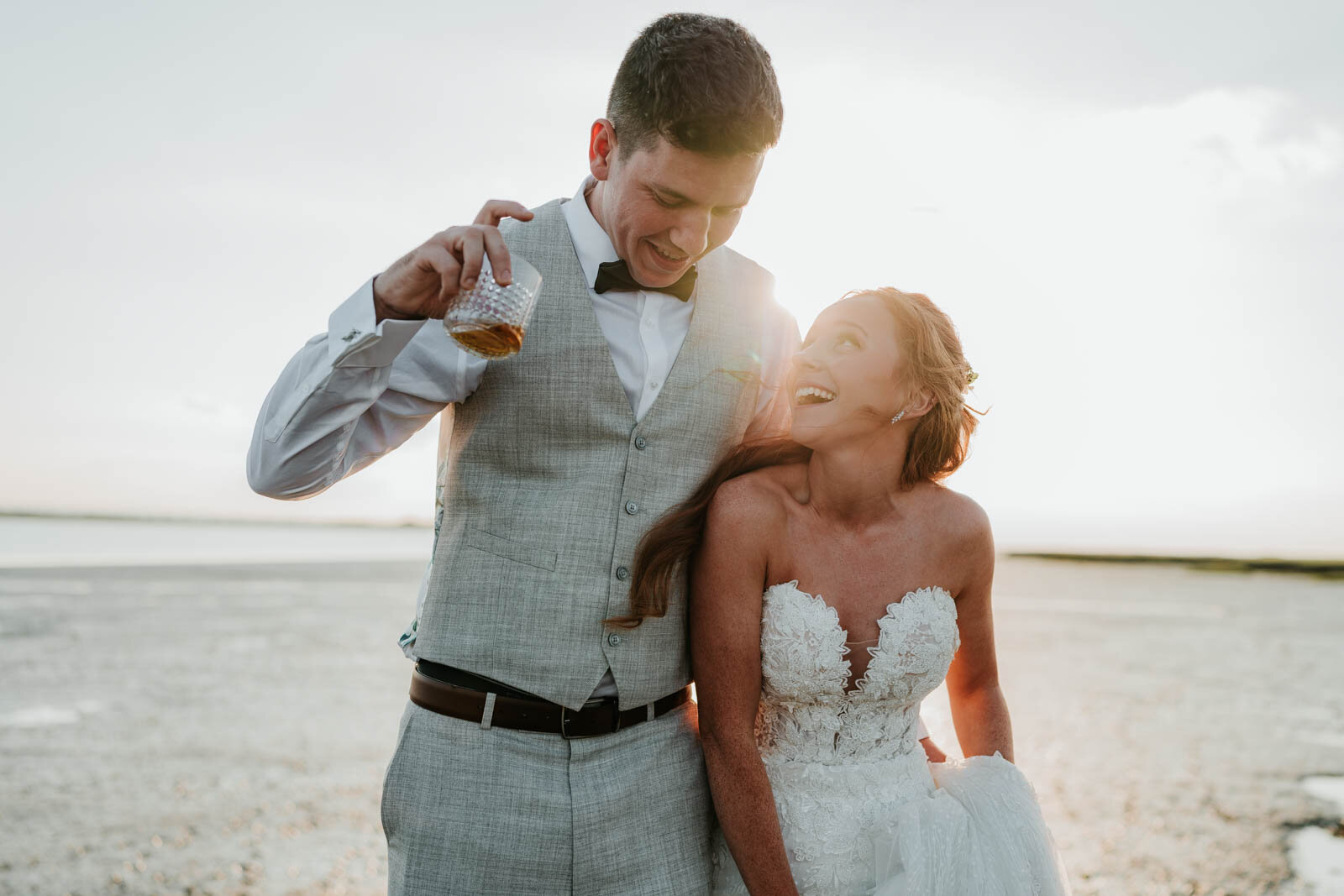
“I’ve found that many times people who have these situations are just rude,” reads one comment by a male photographer. “I’ve shot hundreds of weddings and never felt unsafe. I’m friendly, smile, and joke around a lot and the guests end up being my friend/advocate during the wedding. I’ve seen a few photographers that are flat-out rude and bossy, and the guests will reciprocate.”
Similar comments — made by both men and women — minimize the real-life situations victims have experienced. This behavior also presumes that victims cannot distinguish between a friendly conversation and uncomfortable, aggressive, or inappropriate behavior.
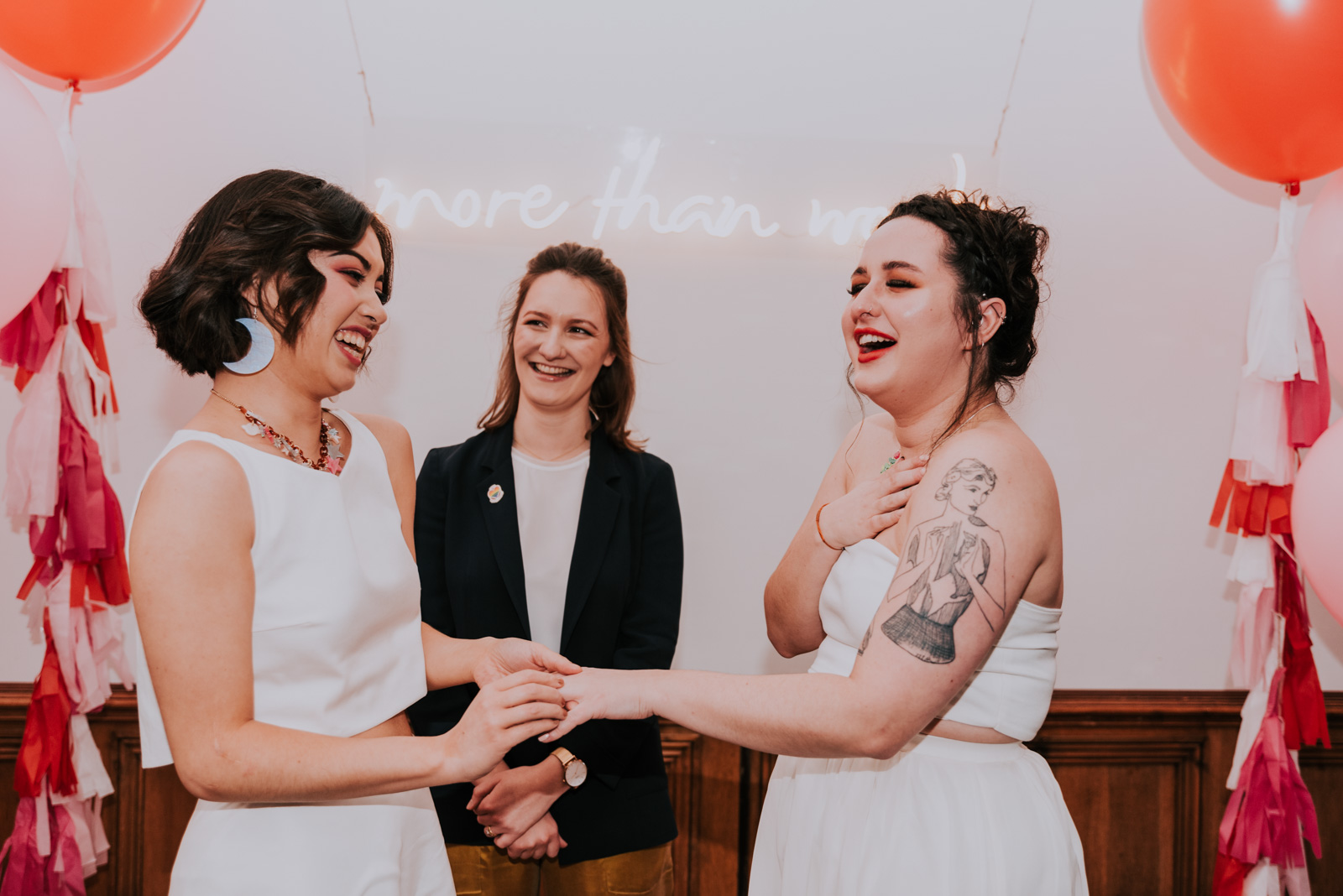
In response, Williams points out that context matters. There is a difference between a man asking for a telephone number at a singles bar and a guest stopping Williams from shooting a group of 150 people to ask in front of everyone loudly, “Can I have your number? Are you single?”
“It’s humiliating,” she says. “It’s belittling. It’s not taking me seriously while I’m doing my job.”
Weddings are a Workplace, Photography is a Job
The ongoing need for women to “stake a claim” to be recognized as legitimate professionals is prevalent in many industries, says Joan Smith, an English journalist, human rights activist, and author of Misogynies: Reflections on Myths and Malice.
From 2013 to 2021, Smith was Co-Chair of the Mayor of London’s Violence Against Women and Girls Board and has discussed the systematic hostility towards women, not least in her continuous coverage of the “Yorkshire Ripper” serial killer case in the late 1970s and early 1908s. Smith also shared her expertise in Netflix’s docu-series, “The Ripper,” where she highlighted the misogynistic language used by the detectives when talking about the victims.
Smith tells PetaPixel that weddings are workspaces for suppliers and anyone should be able to do their work appropriately and are entitled to have those protections. Although for everyone else weddings are personal celebrations, it does not excuse inappropriate behavior towards the professionals who are just trying to do their job.
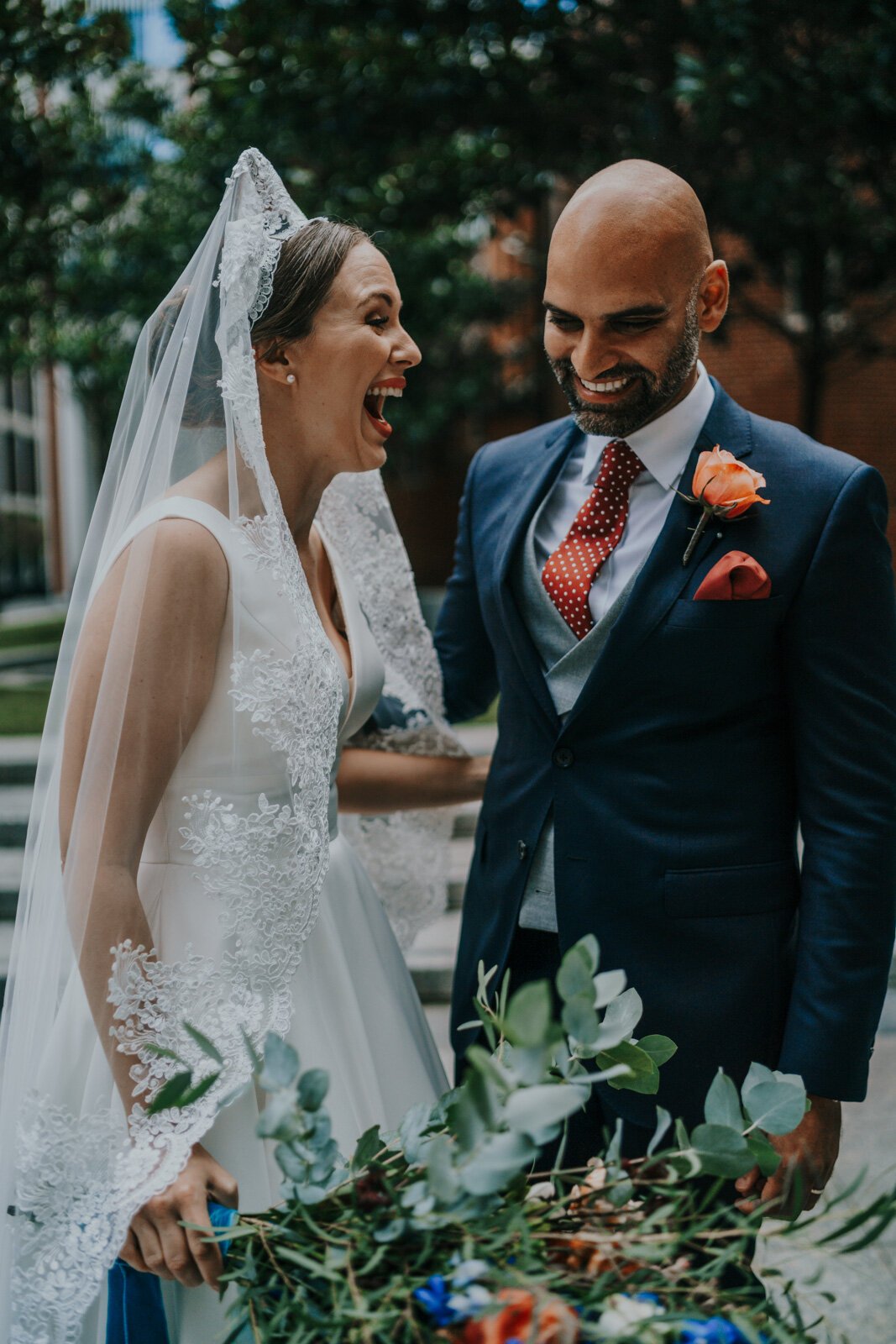
Neither does alcohol. If the behavior wouldn’t be accepted in an office environment, the same should apply to events. However, when women do their job, it’s often not recognized as such, leading to patronizing or demeaning comments and behavior.
Additionally, the bystander problem continues to persist, says Smith. Many don’t want to believe when presented with personal accounts or facts of victims’ experiences. Instead, disbelievers are “effectively in denial” and react defensively, basing their response on emotions instead of evidence.
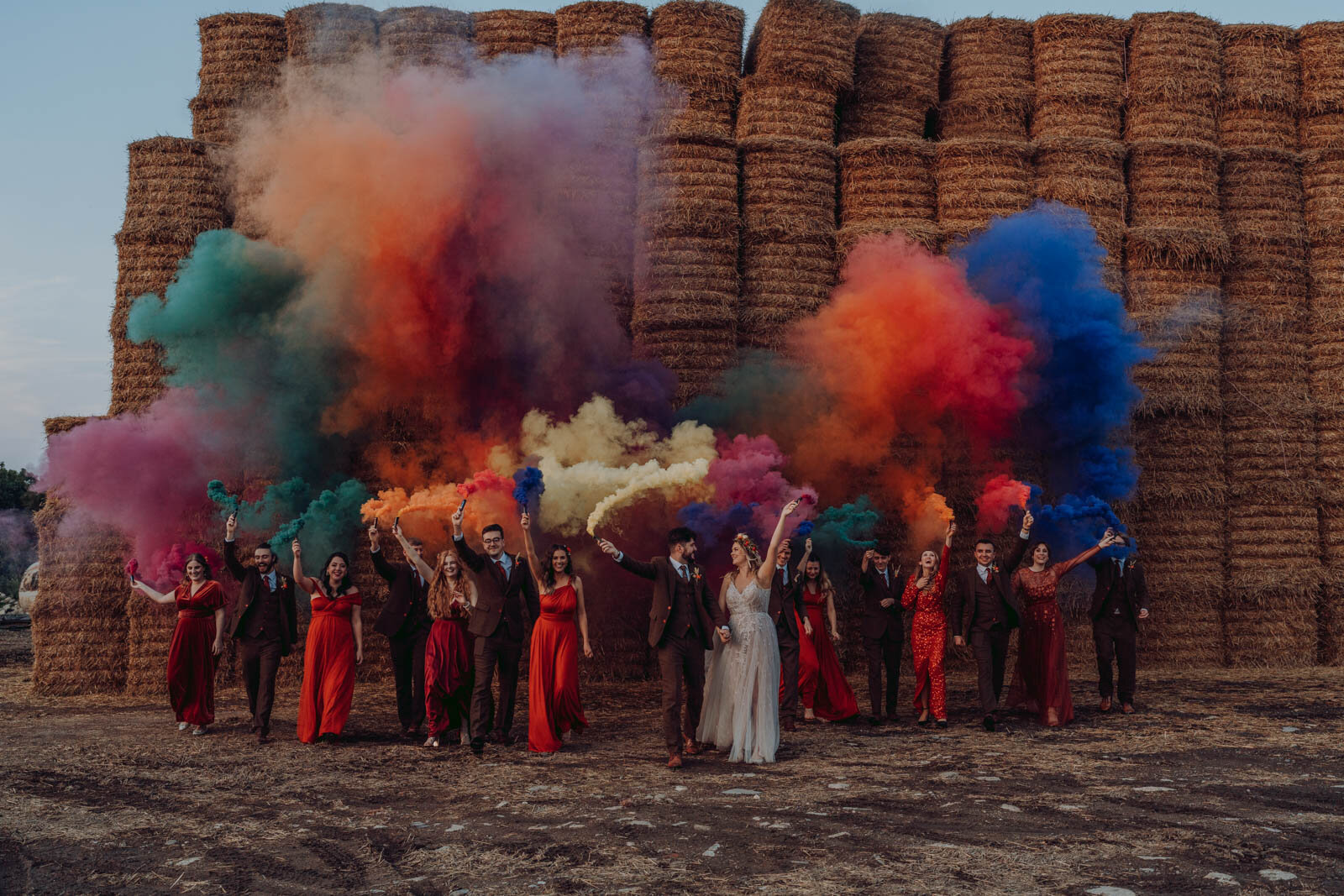
Unfortunately, it’s a deep-rooted behavior and will take time for that to change. However, same as with the #MeToo movement, the issue needs to be raised and challenged, regardless of the discomfort it may cause to those who disbelieve victims.
Similar to suggestions made by Williams and Hitched, Smith adds that photographers need to bring up the discussion of harassment during their conversations with potential couples and strengthen that once more with a contract clause.
Although that alone won’t fully protect suppliers, it reinforces that it’s not just a discussion that can be soon forgotten. Instead, it’s a reality that many photographers have to live with.
Why Did So Many Keep Quiet for So Long?
Although wedding photography is full of human interaction, it can also be a lonely job. If a photographer doesn’t have a second shooter for the day or if the couple doesn’t have a wedding planner, there’s no one else to turn to.
Not wanting to ruin the day for clients, concerns are often put on hold or brushed off altogether. No supplier wants to be seen as making a scene out of fear of being branded “difficult to work with.”
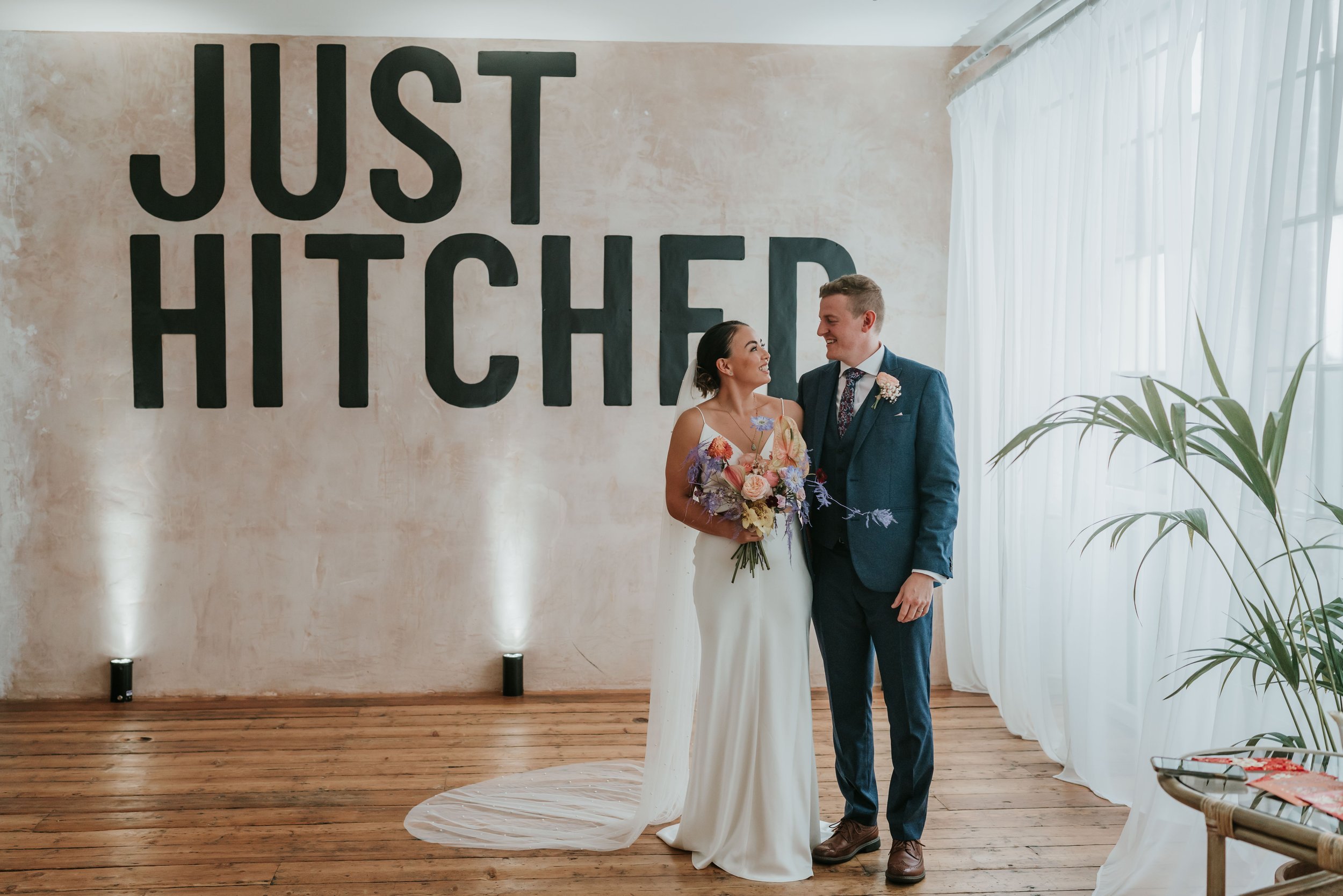
For each wedding to be a unique experience filled with nothing but joyful memories for the couple, suppliers often put their health and safety on hold. Nobody wants to burst the couple’s happy bubble with an unpleasant reality.
“There is an ugly side of what we do that we don’t talk about, because it isn’t pretty,” a destination wedding planner said in her Instagram Story in response to Williams’s post. “But it’s a reality that shouldn’t exist.”
Wedding Photographers Say #MeToo, But What is Next?
“What should we do then?” is a question asked by many. For her part, Williams says she doesn’t know, she simply wanted to continue the conversation and tell her side of the story.
Whatever the case, it’s not up to one or two wedding photographers to lead the shift in attitudes, nor is it up to them to enforce major cultural changes. It’s not fair for any single person to take on the emotional toll that comes with publicly opening up about their experiences and having strangers place certain expectations on them.
Meanwhile, some social media users — wedding planners, other suppliers, venue owners, members of the bridal or groom’s party, and couples about to get married — have shared their commitment to making weddings safer for all going forward.
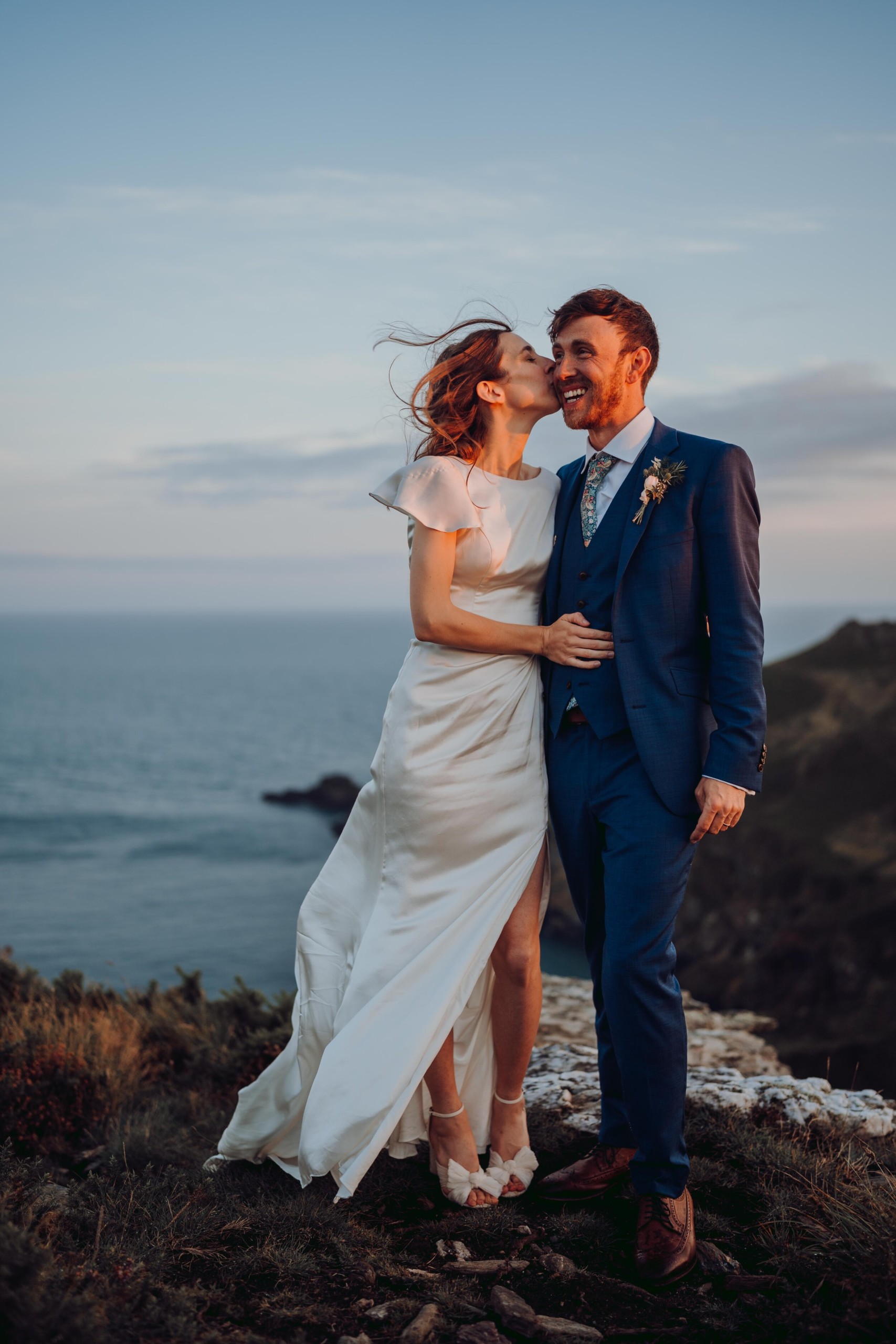
“I have pledged after seeing those posts that my wife-to-be and I will be creating a safe and open space,” writes one bride. “We want to know if things like this happen. I want our team (that we have asked to help create the best day ever!) to know they can come to use and something will be done. I don’t care if it is brothers, best friends, dads, or anyone!
“I wouldn’t accept it from a stranger on a night out, I’m certainly not going to accept it on the biggest day of my life from people I know, love, and trusted.”
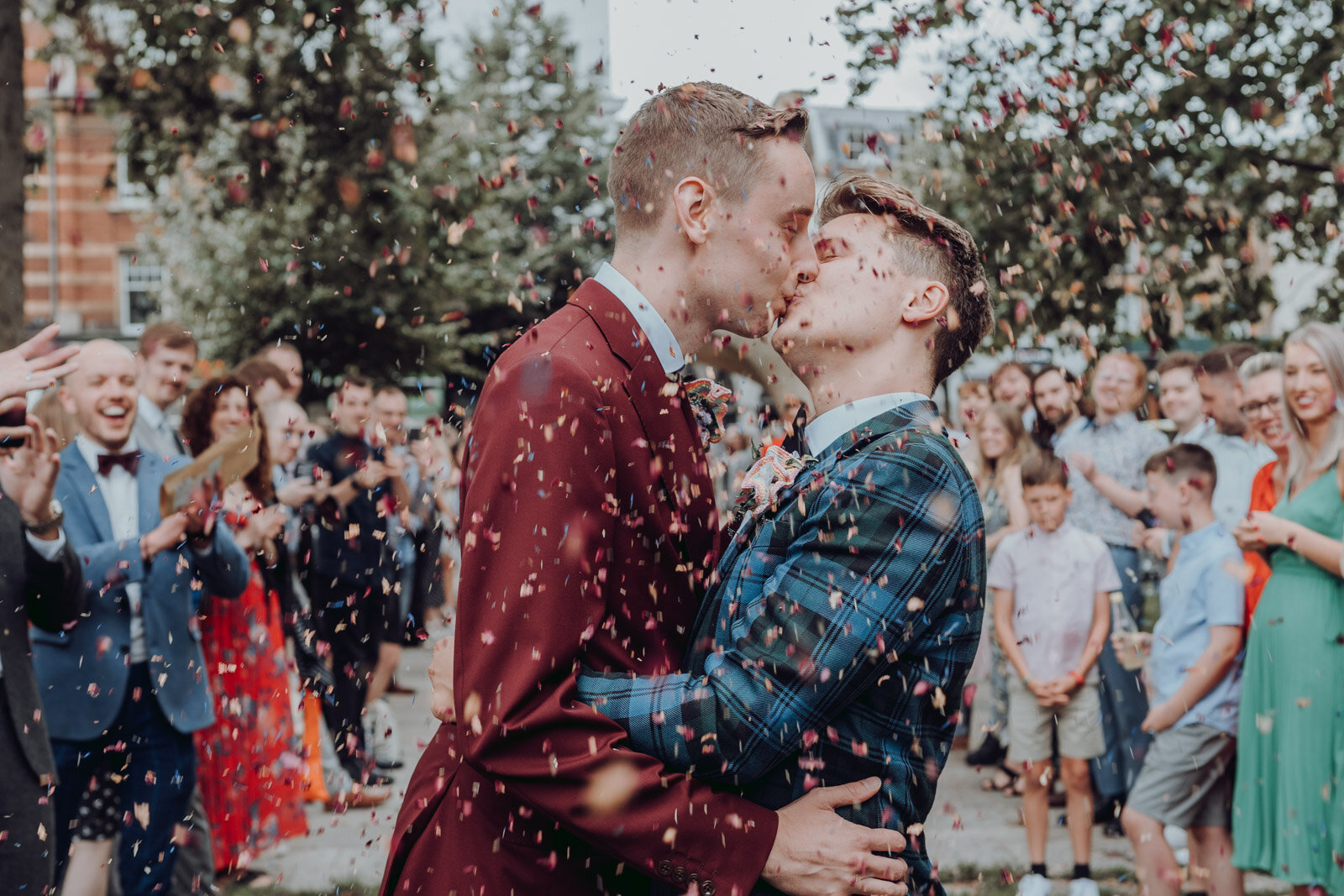
Going forward, Williams is collaborating with Hitched to create a resource guide for safer weddings. But, besides the media interviews and continuing the difficult conversation online, she still has her own business to run.
As for the conversation about the safety of women, it continues as the ongoing battle to reclaim the right to exist in various spheres of life — on the road, at a workplace, on a night out.
However, with the courage of Williams, Goosey, and others, the public can no longer ignore that the wedding industry is filled with troubling and often hidden issues. Those who attend weddings should know these situations happen, and they have the choice to speak out, act, and stop being a bystander.
Image credits: Header photo by Anete Lusina. All other photos are individually credited.